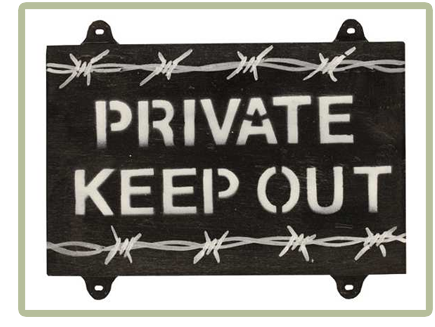Teen Privacy
printable view
email to friend

A folded up piece of paper falls to the ground as you pull a pair of jeans from the laundry pile in your teen's room. Your child's name is written on the outside of it and it is clearly a note from another teen. As a parent, you are obviously curious about the note's content...but as a person of integrity and fairness, you know it is wrong to snoop and that there is the possibility of losing trust with your teen if you do.
Should you open it up and read it?
Situations like this play out every day in homes just like yours. Many parents would jump at the chance to discover such a gem. Others would simply replace the note unopened and unread.
This scenario brings up an important issue: privacy.
Privacy is a touchy subject for teens. They value their independence and expect that even their parents will respect their privacy.
Privacy is something that each child deserves - to a point. As a parent, it is up to you to know your child's whereabouts and to know what activities he or she is engaging in. The ramifications of ignoring this parental responsibility can be very serious. Teen pregnancy, substance use and abuse, depression, violence, and gang affiliation are all very real and very prevalent among teens these days. Sometimes it is necessary for parents to "snoop" or "pry" in order to find out about their child's involvement in these activities. After all, parents can't address issues that they are not aware of.
There is, however, a fine line with regards to respecting your child's privacy. Here are a few tips that will hopefully prevent you from crossing over that line.
Avoid being too nosey. Rummaging through your child's room each day is a bit much and will only cause further problems. Unless you suspect something, you really have no business interfering with your child's privacy. If there is sufficient reason to believe that there is something inappropriate or illegal in your child's room, then it would be appropriate to do a search while he or she is present.
Establish guidelines with regards to privacy. Write them down and follow through with them. Some ideas:
| 1. | You (are/are not) allowed to have a lock on your door. | ||
| 2. | Your room will be checked any time there is reason to believe that it contains illegal or inappropriate objects, substances, or belongings. | ||
| 3. | Mom and dad will never listen in on your phone conversations, but if you are talking loud enough to be heard, then there is a chance that your end of the discussion will be listened to. | ||
| 4. | Do not bring anything into your room that you do not want mom or dad to find out about. | ||
| 5. | If you leave your room excessively messy, there is a chance that mom or dad will come in and "straighten up" for you. If there is anything in there that shouldn't be, then there is a chance that it will be found (even if hidden). In other words, if you leave your room excessively messy, you are inviting mom and/or dad into your room to clean and/or look around. | ||
| 6. | The more trust you earn, the less restrictions you will have with regards to your privacy. | ||
| 7. | You will need to verify your whereabouts when you are away from home. Don't put it past mom or dad to confirm your whereabouts (over the phone or in person). | ||
| 8. | You (are/are not) allowed to do overnights with friends that are unfamiliar to mom and/or dad. | ||
Communicate openly and honestly with your child. The more comfortable he or she feels talking with you about personal issues, the more likely he or she will talk to you. This means that there will be less to "hide" and no reason to be secretive.